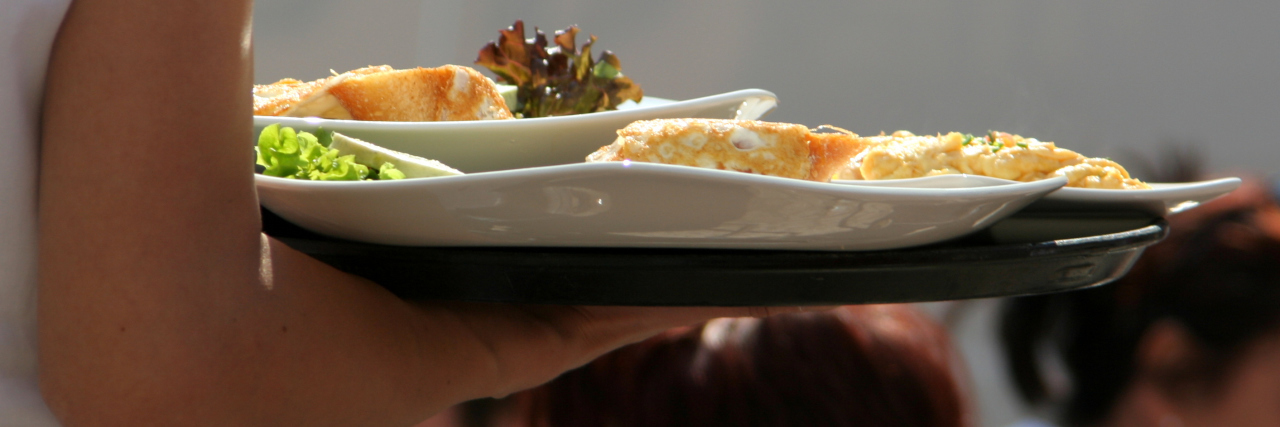There is a common misconception that people with eating disorders do not think about food. I have worked in the food service industry for the past four years — as a server, host and cook. For me, food consumed most of my thoughts, not only in my daily life but also in my line of work.
Phase 1: Server
When I began my first job, I was expected to sell whatever dish was given to me. I watched as every dish was prepared in the kitchen, consumed by patrons and packaged or discarded as leftovers. Throughout my shift, I was expected to stay constantly busy with the customers, side work, or kitchen assistance.
During the worst months of my eating disorder, I saw the restaurant industry as an escape. I would often return from an eight hour shift exhausted and unable to think about any of my other responsibilities, including my own internal battle about recovery. While I was working, I did not have to listen to my friends or family members’ concerns about my health. I kept the conversation light and friendly with my co-workers, commenting on something funny a customer mentioned or upcoming special events. I ended up quitting this job once I realized that it was serving as a barrier to my recovery.
Phase 2: Host
A year later, I applied for a job as a restaurant host with the intention to distance myself from the negative reminders of my previous position. Still, food continued to surround me. I would often catch conversational fragments about the nutritional value of the food — people placing burgers, sandwiches, or drinks into those infamous categories of “good” and “bad.”
This talk came not only from guests but from my co-workers as well, usually when they decided what to eat during their shifts. We were often given free food at the end of each mealtime rush. Although I had begun to practice mindful eating, I found myself having to mindlessly consume whatever food was handed to me en route from one area of the restaurant to another.
Phase 3: Cook
As I continued to try to establish a healthy relationship with food, I invested more effort into making appealing and nutritious meals. This meant taking time each day to put together these meals. I was not the most skilled cook (I once forgot to add water to microwaveable macaroni and cheese), but I wanted to become better. I started cooking meals for a campus organization. I learned how to properly slice vegetables, roll dough and season dishes with spices. While this was the most direct contact I had with food, I was actually able to enjoy the dishes that I made with friends at the dinners that followed.
So what did I learn from these experiences?
Working in the food service industry can be rewarding, but it is important for those recovering from eating disorders to evaluate if it will be contributing to or detracting from their recovery. I don’t think it should be used as a distraction or “test of willpower.” It may also be helpful to let a trusted supervisor know and receive permission to take breaks if interactions with food become distressing.
My hope is that eventually, restaurants and franchises will incorporate knowledge of eating disorders and their warning signs into manager trainings. Many teenagers and college students — a demographic at risk for developing eating disorders — enter into these jobs, and restaurants have the opportunity to create an understanding and positive environment.
If you or someone you know is struggling with an eating disorder, you can call the National Eating Disorders Association Helpline at 1-800-931-2237.
We want to hear your story. Become a Mighty contributor here.
Getty image via Fontanis

